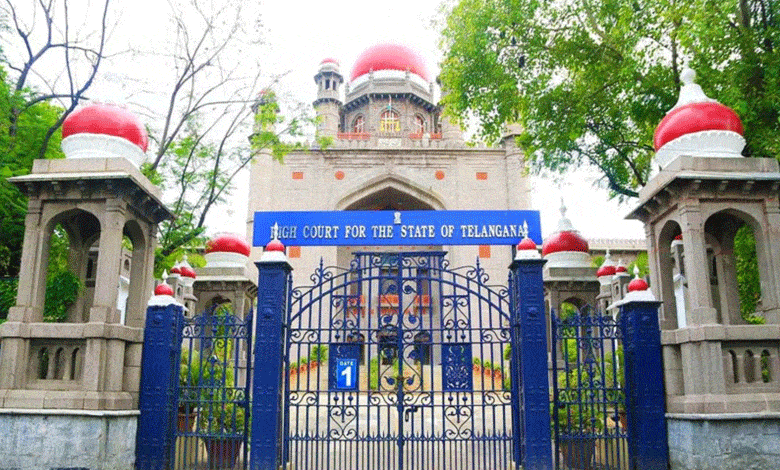Telangana High Court Continues Hearings on Disqualification Petitions Against BRS MLAs
The BRS MLAs' advocate argued that the Speaker's authority over disqualification inquiries falls within judicial oversight, highlighting that it should not be influenced by legislative assembly processes.

Hyderabad: The Telangana High Court on Thursday continued its hearing on the disqualification petitions against Bharat Rashtra Samithi (BRS) MLAs who allegedly defected to the Congress. The bench, comprising Chief Justice Alok Aradhe and Justice J Srinivasa Rao, reviewed arguments from both parties involved in the high-stakes case.
The BRS MLAs’ advocate argued that the Speaker’s authority over disqualification inquiries falls within judicial oversight, highlighting that it should not be influenced by legislative assembly processes.
The counsel contended that the Speaker should challenge a single judge’s recent order that required the assembly to establish a timeline for the hearing process within four weeks, asserting that this authority lies outside the assembly secretary’s jurisdiction.
Also Read: Telangana’s 2025 Polls: Are You on the Voter List? CEO Urges Public to Act Before November Deadline
Assembly Secretary Dr. V. Narasimha Charyulu responded by filing appeals to contest the single judge’s ruling issued on September 9, which mandates a specific schedule for hearings.
Senior advocate G. Mohan Rao, representing the petitioners, argued that the disqualification process falls under the tribunal’s jurisdiction, as per the Tenth Schedule of the Constitution, which mandates judicial oversight on matters involving defection.
He emphasized that legislators facing defection charges should not retain their positions, as it would undermine public trust and the Constitution’s directive for timely resolutions.
Conversely, senior advocates D. Prakash Reddy and B. Mayur Reddy, representing the MLAs in question, opposed judicial interference in the Speaker’s functions, supporting their stance with Supreme Court rulings.
The defense cited the 1992 landmark Kihoto Hollohan vs. Zachillhu case, in which the Supreme Court affirmed the Speaker’s authority in disqualification matters under the Tenth Schedule but clarified that these decisions remain subject to judicial review to prevent arbitrary actions.
The Kihoto Hollohan case set a precedent on anti-defection law, affirming the Tenth Schedule’s constitutionality while confirming the Speaker’s power in disqualification matters and ensuring that judicial review can address any misuse of that authority.
Due to time constraints, the Telangana High Court adjourned the hearing, scheduling further proceedings for Friday.
